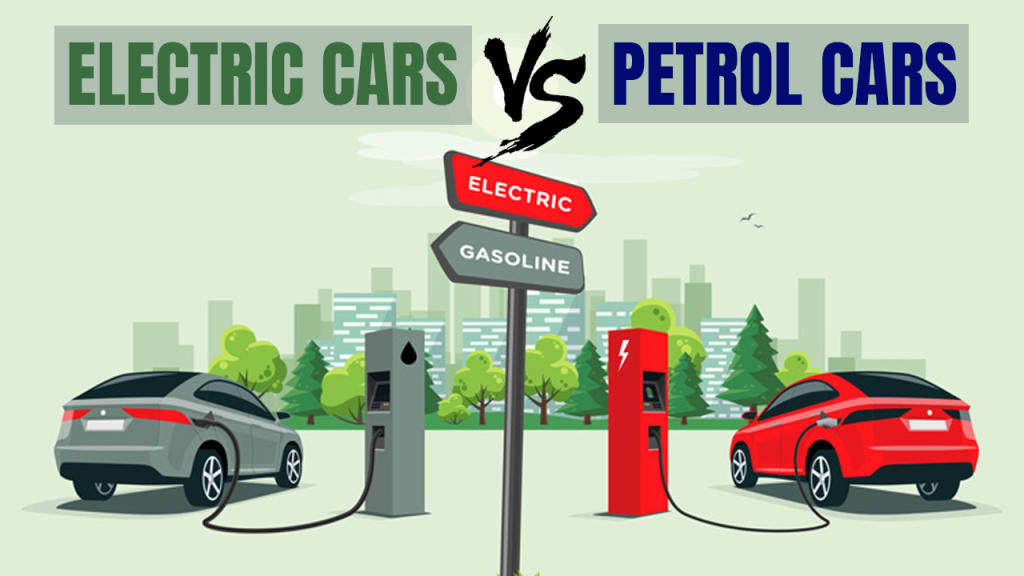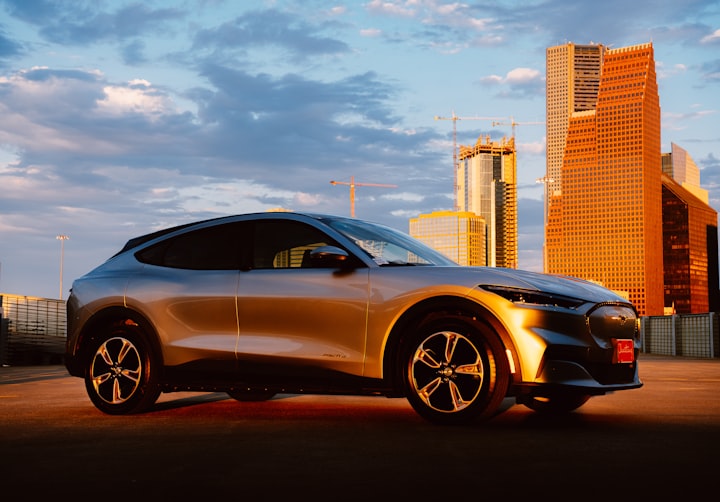
The decision between buying an electric vehicle (EV) or a petrol car depends on several factors such as:
1. Budget: EVs tend to have a higher upfront cost compared to petrol cars, but can have lower long-term costs due to lower fuel and maintenance expenses. The initial cost of purchasing an electric vehicle (EV) is typically higher than that of a conventional petrol car. However, the long-term costs of owning an EV can be lower due to the lower cost of electricity compared to petrol, and the lower maintenance costs associated with EVs (they have fewer moving parts than internal combustion engines). Additionally, some governments offer incentives for buying EVs, which can further reduce the upfront cost. However, the long-term savings of owning an EV can vary depending on several factors such as driving habits, energy prices, and maintenance costs.
2. Driving Habits: EVs are most practical for daily commutes and shorter trips, while petrol cars may be more suitable for longer distances or rugged terrain. Electric vehicles (EVs) are typically best suited for daily commutes and short trips as they have a limited driving range, which can be affected by factors such as climate, terrain, and driving style. However, advancements in battery technology have increased the driving range of EVs, making them more suitable for longer trips.
For longer trips or rugged terrain, a petrol car may be a more practical choice due to the greater range and versatility they offer. However, the suitability of an EV or a petrol car will depend on an individual's specific driving habits, route, and other factors.
3. Charging Infrastructure: EVs require access to charging infrastructure, so it's important to consider the availability of charging stations in your area. Electric vehicles (EVs) rely on charging infrastructure to recharge their batteries, so it's important to consider the availability of charging stations in your area when deciding to buy an EV. The availability of charging stations can vary depending on location and the type of charging station (fast charging or slow charging).
In areas with limited charging infrastructure, owning an EV can be challenging, as it may require careful planning of trips to ensure that you have enough range to reach your destination and the nearest charging station. On the other hand, in areas with well-developed charging infrastructure, owning an EV can be more convenient.
It's important to research the charging infrastructure in your area and plan for your charging needs before making a decision to buy an EV.
4. Range Requirements: The range of an EV refers to the distance it can travel on a single charge, which is an important factor to consider when choosing a vehicle. The range of an electric vehicle (EV) refers to the distance it can travel on a single charge. The range of an EV is an important factor to consider when choosing a vehicle, as it can affect your driving experience and the feasibility of using an EV for your daily needs.
EVs typically have a shorter range compared to petrol cars, but advancements in battery technology have increased the driving range of EVs, making them more suitable for longer trips. The actual driving range of an EV can vary depending on several factors such as climate, terrain, and driving style.
It's important to consider your driving habits and range requirements before choosing an EV. If you have a long daily commute or need to make frequent long trips, you may want to consider a vehicle with a longer driving range, or a backup plan such as access to a second vehicle. On the other hand, if you mostly drive short distances for your daily needs, an EV with a shorter range may be sufficient.
5. Environmental Concerns: EVs emit fewer pollutants than petrol cars and are generally considered to be more environmentally friendly. Electric vehicles (EVs) emit fewer pollutants compared to conventional petrol cars, making them a more environmentally friendly option. EVs generate less greenhouse gas emissions and air pollutants, as they are powered by electricity from the grid, which is becoming increasingly clean and renewable.
Additionally, EVs do not produce tailpipe emissions, which are a significant source of air pollution from petrol cars. As a result, driving an EV can help to reduce the overall impact of transportation on the environment.
It's worth noting that the environmental benefits of EVs can vary depending on the source of the electricity used to recharge the batteries. In regions with high levels of renewable energy, EVs can have a significantly lower carbon footprint compared to regions with heavy reliance on fossil fuels.
6. Personal Preference: Some people may prefer the driving experience of an EV, while others may prefer the traditional driving experience of a petrol car. Choosing between an electric vehicle (EV) or a conventional petrol car is often a matter of personal preference. Some people may prefer the smooth and quiet driving experience of an EV, while others may prefer the traditional driving experience of a petrol car, which can provide more immediate power and performance.
The driving experience of an EV can also depend on several factors, such as the type of vehicle, the battery size, and the charging infrastructure available.
It's important to consider your personal preferences, driving habits, and lifestyle when choosing between an EV and a petrol car. If you value a quiet, smooth, and efficient driving experience, an EV may be a good choice for you. If you prioritize performance, range, and versatility, a petrol car may be more suitable.
It's important to carefully evaluate your specific needs and preferences before making a decision between an EV or a petrol car.
About the Creator
Arjun SD
Engineer





Comments
There are no comments for this story
Be the first to respond and start the conversation.